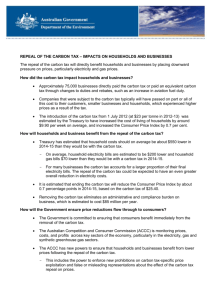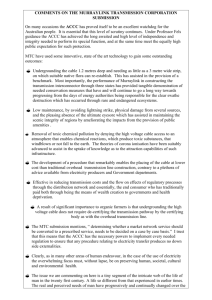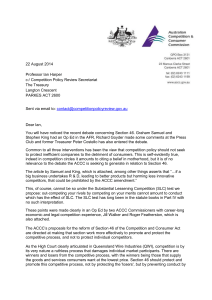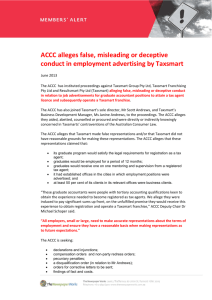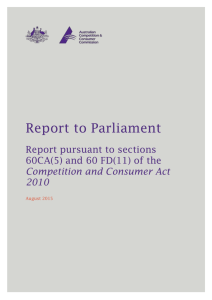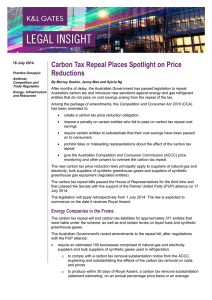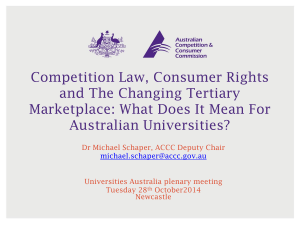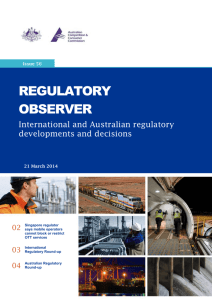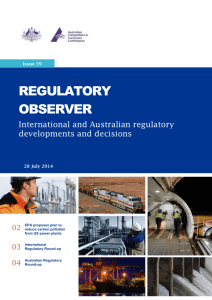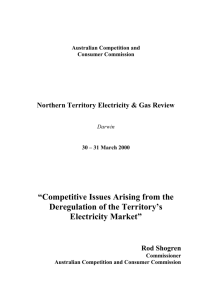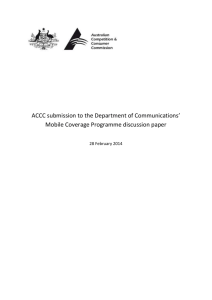Repeal of the Carbon Tax - Ensuring Consumers Benefit
advertisement
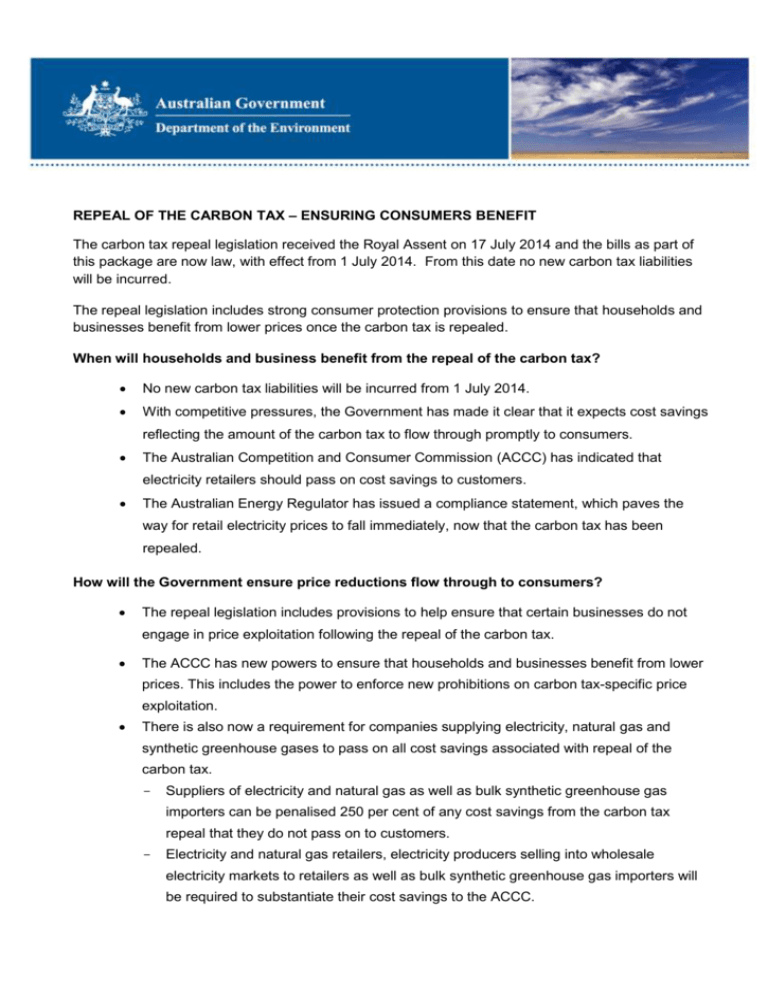
REPEAL OF THE CARBON TAX – ENSURING CONSUMERS BENEFIT The carbon tax repeal legislation received the Royal Assent on 17 July 2014 and the bills as part of this package are now law, with effect from 1 July 2014. From this date no new carbon tax liabilities will be incurred. The repeal legislation includes strong consumer protection provisions to ensure that households and businesses benefit from lower prices once the carbon tax is repealed. When will households and business benefit from the repeal of the carbon tax? No new carbon tax liabilities will be incurred from 1 July 2014. With competitive pressures, the Government has made it clear that it expects cost savings reflecting the amount of the carbon tax to flow through promptly to consumers. The Australian Competition and Consumer Commission (ACCC) has indicated that electricity retailers should pass on cost savings to customers. The Australian Energy Regulator has issued a compliance statement, which paves the way for retail electricity prices to fall immediately, now that the carbon tax has been repealed. How will the Government ensure price reductions flow through to consumers? The repeal legislation includes provisions to help ensure that certain businesses do not engage in price exploitation following the repeal of the carbon tax. The ACCC has new powers to ensure that households and businesses benefit from lower prices. This includes the power to enforce new prohibitions on carbon tax-specific price exploitation. There is also now a requirement for companies supplying electricity, natural gas and synthetic greenhouse gases to pass on all cost savings associated with repeal of the carbon tax. - Suppliers of electricity and natural gas as well as bulk synthetic greenhouse gas importers can be penalised 250 per cent of any cost savings from the carbon tax repeal that they do not pass on to customers. - Electricity and natural gas retailers, electricity producers selling into wholesale electricity markets to retailers as well as bulk synthetic greenhouse gas importers will be required to substantiate their cost savings to the ACCC. In addition, electricity and natural gas retailers are required to inform customers about the cost savings that they are passing on. The legislation also prohibits businesses from making false or misleading representations about the effect of the carbon tax repeal on prices. The ACCC also has existing powers prohibiting anti-competitive conduct which may enable price exploitation more generally. How will the Government know if businesses are not passing through cost reductions? The ACCC has been monitoring prices since 1 March 2014 to assist with its assessment of the general effect of the carbon tax repeal on prices of certain goods, including electricity, natural gas and synthetic greenhouse gases. The ACCC may also monitor prices advertised, displayed and offered to potentially allow the ACCC to identify price exploitation before it has actually occurred. The ACCC issued its first report on carbon tax price monitoring to the Treasurer on 1 May 2014 for the March 2014 quarter. This monitoring report assists the ACCC to ensure that businesses do not engage in price exploitation. What if businesses continue to charge a carbon component? The ACCC has new powers to take action against certain entities that engage in price exploitation following the repeal of the carbon tax. - Penalties of up to $1.1 million for corporations and $220,000 for individuals apply for carbon tax-related price exploitation following the repeal. In certain cases entities found to be engaging in price exploitation may be required to limit prices and/or pay refunds. More Information The Treasury – modelling a carbon price http://carbonpricemodelling.treasury.gov.au/content/report.asp ACCC – carbon tax repeal www.accc.gov.au/business/carbon-tax-repeal ACCC – carbon price claims www.accc.gov.au/consumers/prices-receipts/carbon-tax-repeal-for-consumers Disclaimer While reasonable efforts have been made to ensure that the contents of this publication are factually correct, the Commonwealth does not accept responsibility for the accuracy or completeness of the contents, and shall not be liable for any loss or damage that may be occasioned directly or indirectly through the use of, or reliance on, the contents of this publication. 2
